
Electronic english version since 2022 |
The newspaper was founded in November 1957
| |
|
Number 47 (4745)
|
Their names are in the history of the Institute
Preserving the warmth of memory
On 21 November, the Frank Laboratory of Neutron Physics celebrated the 100th anniversary of Lev Borisovich Pikelner's birth. The employees of the Frank Laboratory of Neutron Physics and other Laboratories of the Institute, Moscow's ITEP and the National Research Centre "Kurchatov Institute" gathered to remember their colleague and senior comrade.
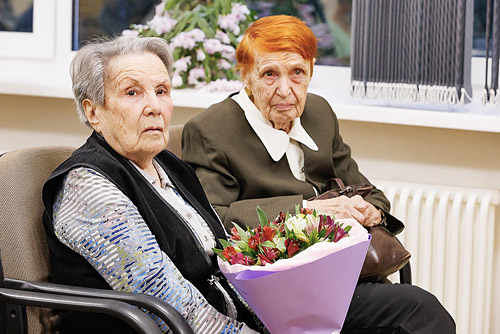 |
| E.Ya.Pikelner and N.Yu.Shirikova |
"For me, Lev Borisovich and Yury Sergeevich Zamyatnin are the aksakals of the Laboratory," FLNP Director E.V.Lychagin opened the Seminar. "They not only determined the scientific research areas, but also the atmosphere in the Laboratory - the attitude towards colleagues and work. I hope that the young people, of whom there are many here, will feel the atmosphere that reigned in the Department of Nuclear Physics of FLNP at that time.
In his report "Lev Borisovich Pikelner - a life dedicated to FLNP" V.I.Furman spoke about the main experiments and interesting results obtained by Lev Borisovich with his colleagues from the Department, as well as physicists from Poland and Germany. He also participated in the first experiment after the launch of IBR in 1960 to measure the radiation capture of resonance neutrons in a lead target. At that time, world-class detectors were developed, one of which - "Barrel" or "Pikelner's Daisy" is still in operation. Later, the POLYANA facility was developed for neutron polarization, where significant results were obtained. Investigations of angular correlations in fission caused by resonance neutrons turned out to be the last experiments at IBR-30 before it was shut down. Afterwards, measurements of delayed fission neutrons began at the IBR-2 reactor and Lev Borisovich and his colleagues made their last publication in a peer-reviewed journal in 2015.
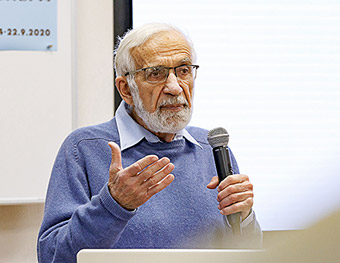 |
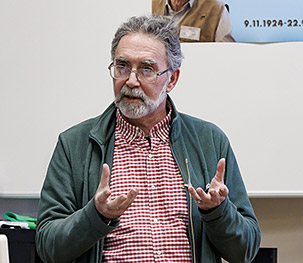 |
| V.I.Furman | V.R.Skoy |
V.R.Skoy focused on the investigation of non-conservation of spatial parity in neutron-nuclear interactions - a topic that Lev Borisovich had been working on for almost his entire scientific life. He gave a brief overview of the experiments implemented at the POLYANA facility. He recalled the talented people that had designed and operated this facility. It allowed a wide range of issues to be met and Lev Borisovich had always been the formal and informal inspiration for their decision.
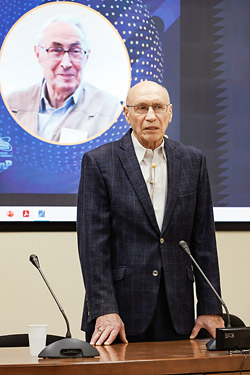 |
| V.L.Aksenov |
N.V.Rebrova and K.V.Zhdanova shared their impressions of communicating with L. B. Pikellener that did not spare his time communicating with them, graduate students, instilling confidence in their abilities. He was preserved in their memories as a wonderful scientific supervisor and a wonderful person.
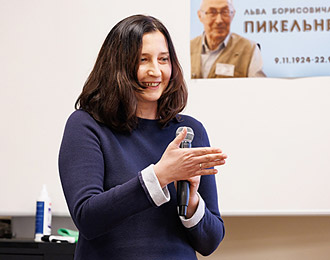 |
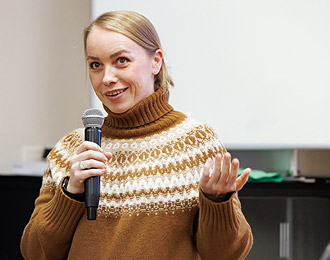 |
| N.V.Rebrova | K.V.Zhdanova |
Ivan Ruskov's speech was accompanied by a large number of archival photographs and a three-minute documentary film about the athletes and sportsmen of Dubna, participants of the Veksler Run of 1972 and Lev Borisovich was one of them.
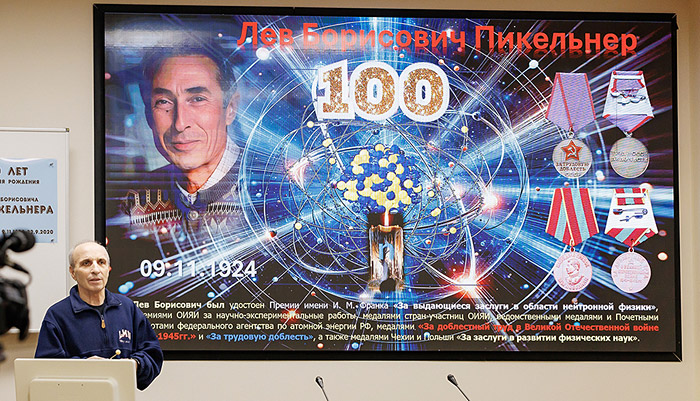
I.Ruskov
S.N.Dolya told about how he and Lev Borisovich had been kayaking and had climbed the mountains. Although he had not worked with L.B.Pikellener, he had asked him for advice as a more experienced experimenter. "Communication with him on science was sometimes painful for pride, but very useful for understanding," Sergey Nikolaevich stated.
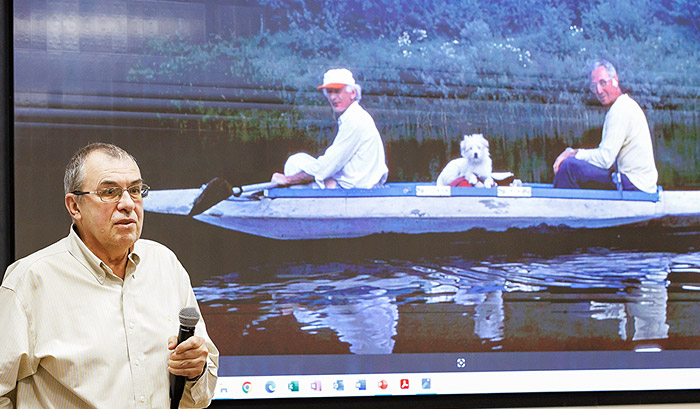
S.N.Dolya
A.V.Strelkov shared an interesting photograph from 1961 with the participants, emphasizing that Lev Borisovich had always been very kind-hearted and gentle in personal communication. S.I.Negovelov also warmly remembered Lev Borisovich.

A.V.Strelkov
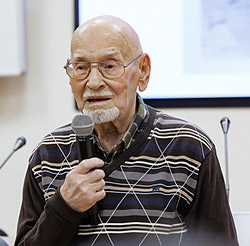 |
| G.V.Danilyan |
A.L.Barabanov said that thanks to L.B.Pikellener he has been friends with FLNP for 30 years: "The first meeting with him took place in 1982 at the school for young scientists of the Kurchatov Institute. Lev Borisovich's story about the research of neutron resonances was so simple and clear that it was his report that was etched in my memory from that school. I am grateful to Lev Borisovich for introducing me to FLNP!"
This atmosphere of warm memories and human gratitude to Lev Borisovich reigned in the Conference hall for three hours. I would like to hope that it will be preserved in the next generations of the Laboratory staff.
Olga TARANTINA,
photo by Elena PUZYNINA